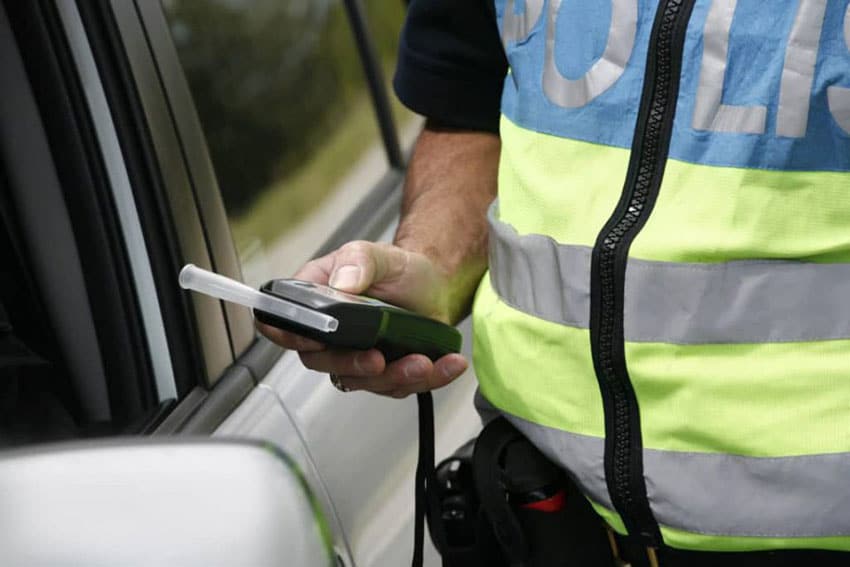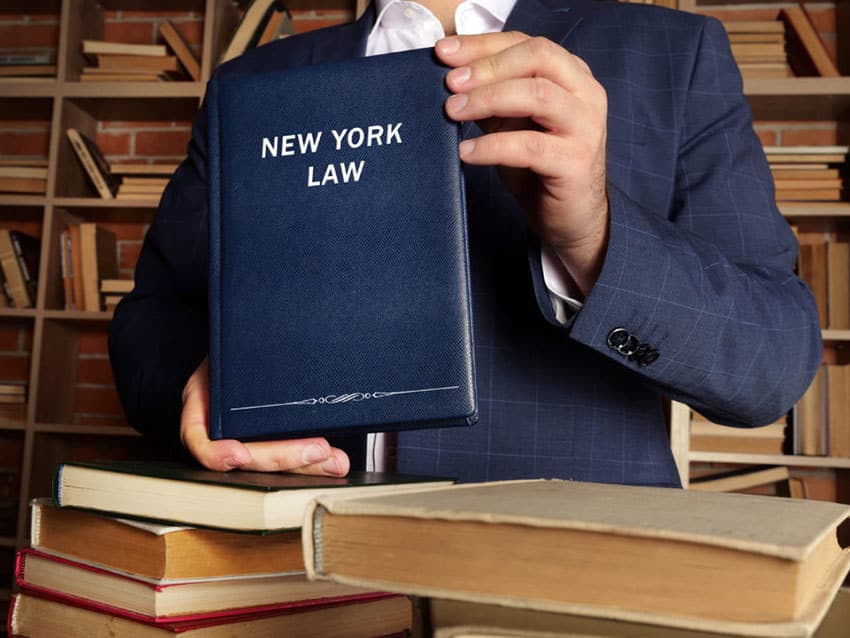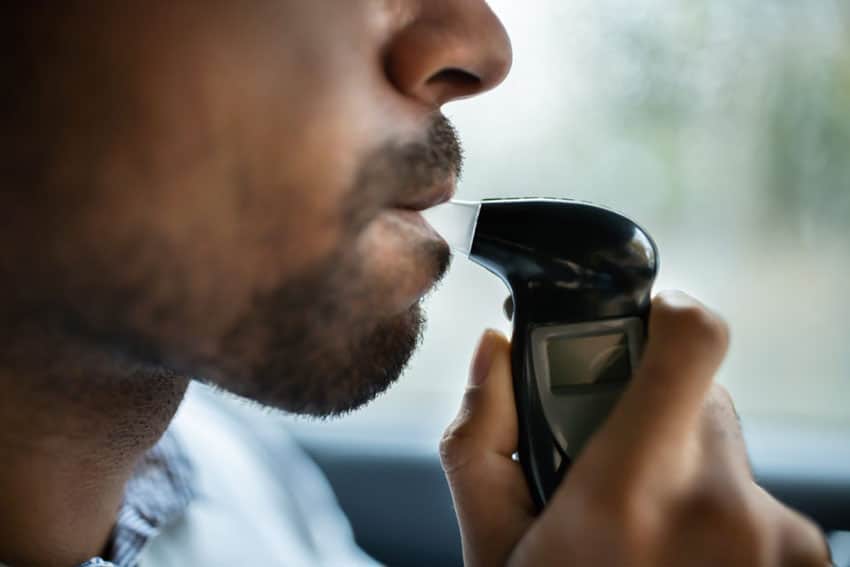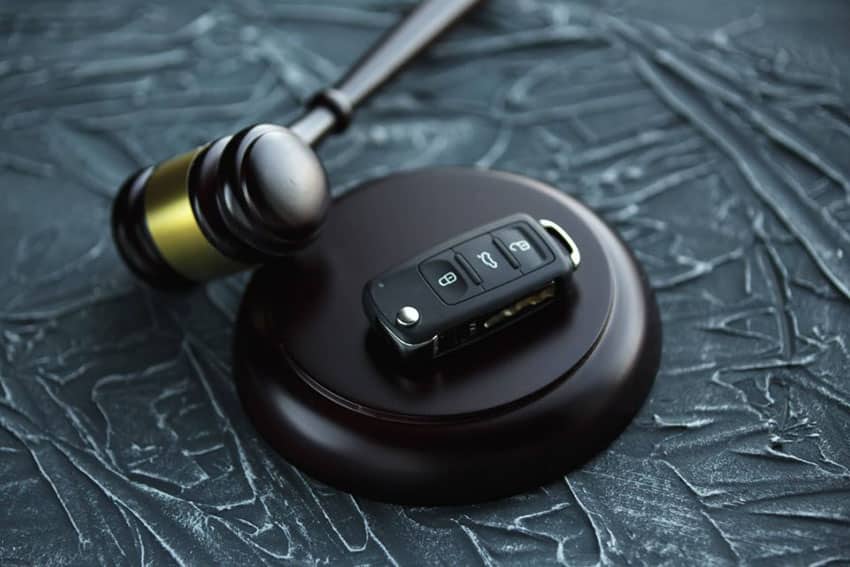When a driver is suspected of committing a DWI offense, he or she may be given a breath test on a device known as the Breathalyzer to determine their blood alcohol concentration (BAC). Many law enforcement officials make use of the Breathalyzer machine in DWI cases because it is able to give a direct digital reading of a suspect’s approximate blood alcohol level.

The Breathalyzer machine works by giving measurements of alcohol level by monitoring expired air from a DWI suspect’s lungs. The Breathalyzer machine uses a color reaction to detect alcohol; the degree of color change that the machine shows is related to the alcohol level in the breath. The results of a Breathalyzer are typically expressed as the BAC, which represents the grams of alcohol per 100 milliters of blood. The science behind the working of the Breathalyzer machine is based on measuring alcohol-laden blood that passes through the tiny channels in the air sacs of the lungs. The volatility of alcohol encourages its passage through the channel membranes into the lung, where it can be exhaled. A Breathalyzer test detects this expired alcohol.
Residual Mouth Alcohol
Many DWI suspects may not realize that the Breathalyzer test may have errors in reading their breath alcohol level. The most common cause of false positive Breathalyzer readings is due to residual mouth alcohol. Residual mouth alcohol (which is sometimes just referred to as “mouth alcohol”) may be caused by many things. If a DWI suspect consumes a substance that contains alcohol before taking a Breathalyzer test, the exhaled air will absorb alcohol not only from the lungs, but also from the substance used in the upper part of the mouth and throat. This can cause the Breathalyzer machine to show the alcohol concentration detected in the exhaled air as higher than the concentration in the lung air. Even a minute amount of undigested alcohol in a DWI suspect’s mouth can have a significant impact on a breath test reading.
Mouth alcohol can be caused by many things such as blood or chewing tobacco. These substances can affect a Breathalyzer test if they are trapped within a recess in a DWI suspect’s mouth. Cough drops containing menthol can produce an elevated Breathalyzer result. The use of the cold medication, Nyquil, and mouthwashes like Listerine and breath fresheners can also give a higher reading on the Breathalyzer as they contain small levels of alcohol. Certain metals in the mouth, whether new dental work or piercings, can cause “mouth alcohol,” which in turn can cause false Breathalyzer results.
If a DWI suspect has dentures, dental caps or bridges, this may also result in mouth alcohol as these fixtures can trap alcohol in tiny crevices in the mouth. Vomiting, smoking and gum chewing can do the same because these actions bring the vapors of alcohol from the stomach back up to the throat or mouth. The medical condition known as gastro-esophageal reflux disorder (GERD) can also cause a falsely high reading on a Breathalyzer test. This condition causes constant reflux and regurgitation. If a DWI suspect has GERD, gases, including alcohol molecules, can leave the stomach and pass into the mouth. During a breath test, these alcohol gases mix with deep lung air, which also contains alcohol, and the accumulated gases are read by the Breathalyzer machine together and this may cause a false breath test result.
Pre-Test Observation Periods
Mouth alcohol is taken up by the saliva or absorbed into the body within a few minutes. Because of this police officers are generally required by policy or regulation to observe a DWI suspect carefully for 15 to 20 minutes before giving them a Breathalyzer test to ensure that they do not belch, burp, hiccup or regurgitate.
Police officers also observe DWI suspects before a Breathalyzer test to make sure ensure that their mouths are free of foreign objects. Foreign objects in the mouth can inflate the Breathalyzer’s blood alcohol calculation and call into question the reliability of the test. In general if a DWI suspect swallows anything or regurgitates, or if the police officer notices the suspect chewing gum or tobacco, the officer is required to begin counting the pre-test observation period anew.
Because of the possibility that a medical condition or other pre-test condition caused a false Breathalyzer result, it is always necessary for a DWI defendant to give their DWI defense attorney all of their relevant medical and dental history. If a police officer in a DWI case fails to meet the requirement of the pre-test observation period, a DWI defense attorney can challenge the admission of the Breathalyzer test results at trial.
Slope Detectors
In order to avoid the possibility of mouth alcohol causing a false result on a Breathalyzer, the slope detector is used on some breath test machines, such as the Intoxilyzer 5000. A slope detector is designed to help ensure that air from the lungs actually composes the breath that is being tested. The “slope” refers to the rise and fall in a DWI suspect’s breath alcohol concentration. The device measures a breath sample to determine if the slope increases or decreases in a way that would indicate that the breath sample is not valid. The slope detector in the Intoxilyzer 5000 is designed to measure the rate at which alcohol concentration changes inside the machine. If the concentration changes too fast (i.e., results in too “steep” of a slope), the machine registers an alert to the police officer by giving an “invalid sample” warning notifying the officer of the presence of the residual mouth alcohol. The machine then will abort the breath test. The slope detector on the machine must be satisfied that it is giving an appropriate breath sample before the Intoxilyzer 5000 will produce a result.
Get Legal Support Today
The attorneys at the law firm of DWI Team are experienced in handling DWI cases and fighting the Breathalyzer results. If you need a lawyer who can help you obtain the best possible outcome in your DWI case, call the DWI Team, 24/7: 1-800-394-8326.
DISCLAIMER: The exclusive purpose of this article is educational and it is not intended as either legal advice or a general solution to any specific legal problem. Corporate offices for The DWI Team are located at 231 Walton Street, Syracuse, New York 13202; Telephone No.: 1-800-394-8326. Prior results do not guarantee a similar outcome.










